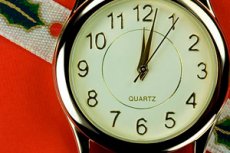Study finds disrupted sleep increases risk of suicide and homicide
最近審查:14.06.2024

An analysis by researchers in the Department of Psychiatry at the University of Arizona College of Medicine in Tucson found that the risks of death from suicide and homicide peak at night, with being awake at night, age, alcohol use and relationship conflicts being particularly common contributing factors.
Almost 19% of suicides and 36% of murders occur at night. Suicide and homicide have little in common, but their highly consistent nocturnal risk patterns suggest a common feature: nighttime wakefulness.
“Disturbed sleep can acutely impair rational thinking, which can lead to impulsive behavior in vulnerable people,” said study first author Andrew Tubbs, MD, a researcher in the Sleep and Health Program at the University of Arizona College of Medicine in Tucson, Department of Psychiatry..
“Our analysis of 15 years of US data found that there is a five-fold risk of suicide and an eight-fold risk of homicide between 2 and 3 a.m. When controlling for the number of people who are awake and capable of committing suicide or homicide.”
The article, “Risk for Suicide and Homicide Peaks at Night: Findings from the National Violent Death Reporting System, 35 States, 2003–2017,” was published in the Journal of Clinical Psychiatry.
“The fact that these nocturnal risk patterns apply to both suicide and homicide is striking,” said senior study author Michael Grander, PhD, assistant professor of psychiatry, director of the Behavioral Sleep Medicine Clinic and member of the BIO5 Institute.
“In our review of more than 78,000 suicides and 50,000 homicides, we can find some insight into why staying awake at night—what we call 'mind after midnight'—carries a clear risk for dysregulated behavior.”
The authors' "mind after midnight" hypothesis suggests that nighttime wakefulness impairs the brain's complex decision-making functions and reduces rational thinking at a time when negative mood is at its peak, positive mood is at its lowest, and risk/reward processing is distorted.
The results supported this hypothesis. Nighttime risk was higher among adolescents and young adults, people who were intoxicated, and those experiencing current conflict with a partner, but not among those who used cannabis or were depressed.
People aged 15 to 24 experienced a threefold overnight risk of suicide, while an unexpected risk of suicide was observed among older adults at 6am. The risk of homicide did not vary by age, although young people made up more than half of all homicide victims.
"Few studies have examined time trends in violent crime," Tubbs said. “Future research could clarify what exactly is happening in the brain that predisposes people to these risks, and whether evidence-based strategies to improve sleep and reduce nighttime waking can help reduce risks and prevent these tragic outcomes.”

